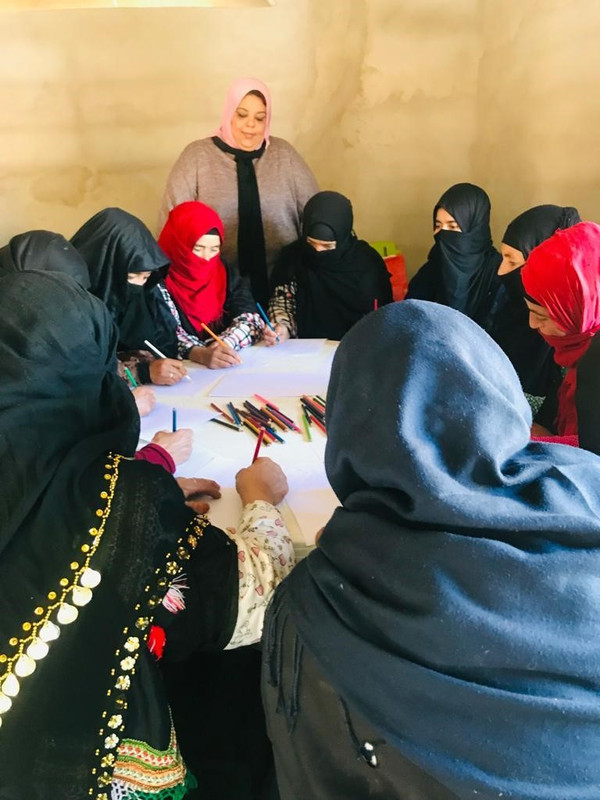By Bouchra Zine, HAF Field Officer

I have always believed that training is an important and interesting way to meet people who you might not normally connect with: people from different age groups, ethnicities, or social groups. It is like some kind of magic that allows you to meet a wide variety of people from all walks of life, something that can only open your eyes further.
Since the first moment cooperative president Lalla Rachida told me that I would attend an IMAGINE workshop with her in Taroudant, I was so excited to be there and meet the women of Tiferki village. Because of my sociable personality, I am always trying to discover new places and cultures and interact with new mindsets.
Language is an important tool of communication that empowering women can’t succeed without it. It was a little bit disappointing that I couldn’t speak Tachelhit, the Tiferki people’s mother tongue. I was very hesitant and unsure because it can be tricky connecting with someone whose language is completely different. However, it was very important to do my best in order to complete my task.
Once I arrived there, I met Khadija, the local woman who was with us during the four days, and she was familiar with Darija, the Moroccan Arabic language. This advantage made me feel comfortable. Finding someone who is able to switch her language depending on who she is speaking was a huge advantage. It was necessary to keep the lines of communication open with all the people in that beautiful village.
Personally, I have never been surprised by the variety of cultural influences in some huge Moroccan cities, but it’s interesting that the same amount of influence was present in a very small village like Tiferki. People who use smartphones and communicate through modern social media, such as Facebook and WhatsApp, are the same people who still preserve their culture, the customs of their tribe, and their mother tongue. This indicates that they consider clothes, language, customs, and beliefs are inseparable parts of their individual and collective identity that cannot change despite the change of time and place and the development of life. “Our culture is our wealth,” said Lalla Kaltouma.
Tiferki women proved that illiteracy does not have to be an obstacle to achieving one’s dreams. When they couldn’t express their points of view by speaking or writing, they drew their ideas using colors. Personally, I liked all of the IMAGINE workshop’s activities. But what I found more powerful for women was the meditation phase. Some women talked freely about their painful stories while others’ tears talked louder.
Like any other experience in life, I tried to benefit as much as I could every moment, activity, meeting, and training because I could have another, similar experience, but not with the same advantages or in the same circumstances.
To conclude, Tiferki women are real heroines. They can make change. They are just in need of some training that will push them to take the first step, and then they will surely shine.
This article was completed with the support of the United States Agency for International Development (USAID) Religious and Ethnic Minorities Activity (REMA), and the High Atlas Foundation is solely responsible for its content, which does not necessarily reflect the views of the USAID or the Government of the United States.
